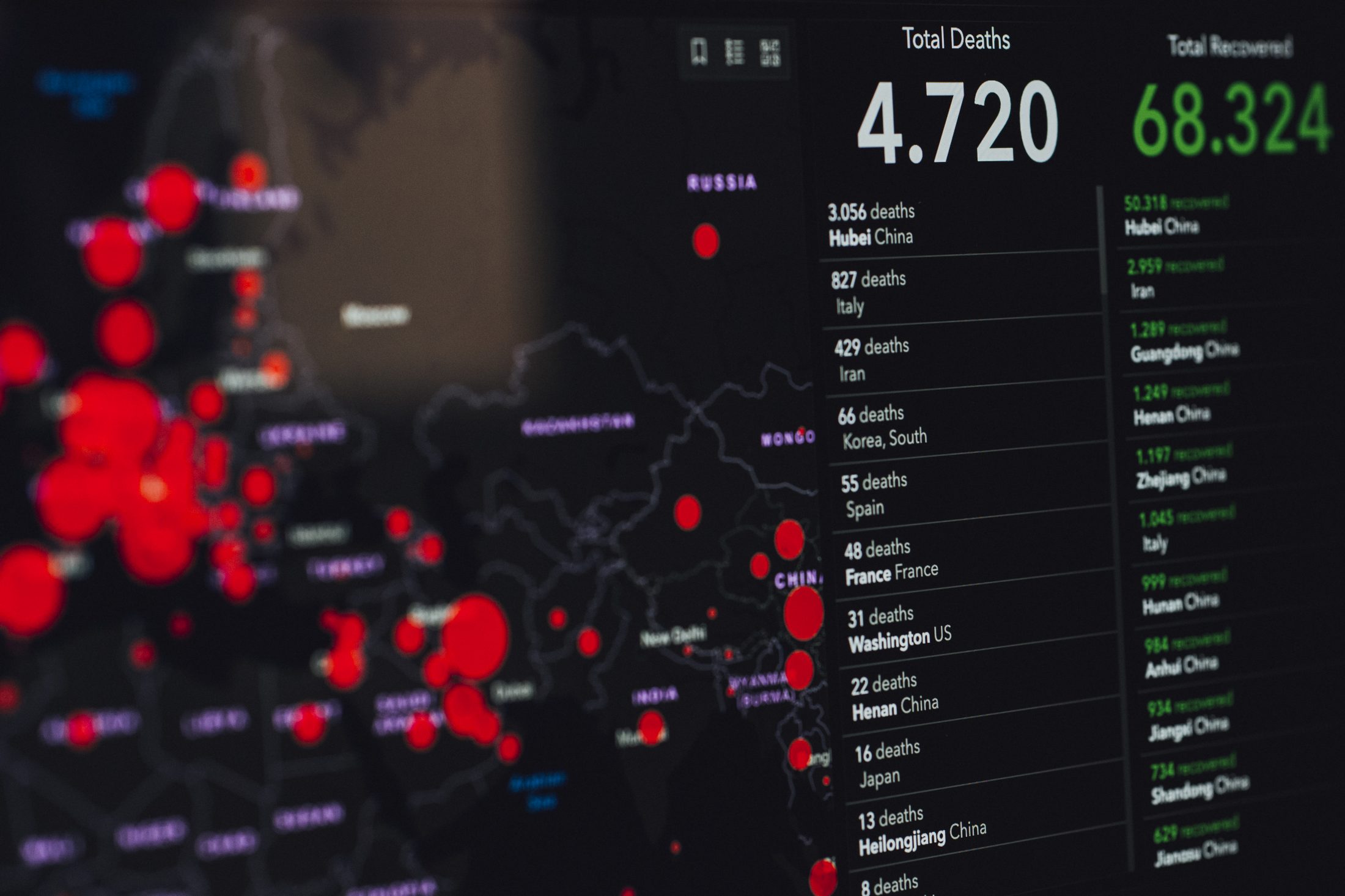The 2019–20 coronavirus pandemic is an ongoing pandemic of coronavirus disease 2019 (COVID-19), caused by severe acute respiratory syndrome coronavirus 2 (SARS-CoV-2). The outbreak was first identified in the city of Wuhan, Hubei, China in December 2019, and was recognized as a pandemic by the World Health Organization (WHO) on 11 March 2020. As of 20 March, more than 246,000 cases of COVID-19 have been reported in at least 180 countries and territories, resulting in more than 10,000 deaths and 88,000 recoveries. The virus primarily spreads between people via respiratory droplets from coughing or sneezing. It is considered most contagious when people are symptomatic, although the spread is possible even before symptoms appear.
The time between exposure and symptom onset is typically around five days but may range from two to fourteen days. Common symptoms include fever, cough, and shortness of breath. Complications may include pneumonia and acute respiratory distress syndrome. There is no vaccine or specific antiviral treatment; treatment efforts consist of symptom alleviation and supportive therapy. Recommended preventive measures include hand washing, covering the mouth when coughing, maintaining distance from other people, and monitoring and self-isolation for people who suspect they are infected. Efforts to prevent spreading include travel restrictions, quarantines, curfews, event postponements and cancellations, and facility closures. These include quarantine of Hubei, nationwide quarantines in Italy and elsewhere in Europe, curfew measures in China and South Korea, various border closures or incoming passenger restrictions, screening at airports and train stations, and travel advisories regarding regions with community transmission. Schools and universities have closed either on a nationwide or local basis in at least 115 countries, affecting more than 1.6 billion students.

The pandemic has led to global socioeconomic disruption, the postponement or cancellation of sporting and cultural events, as well as widespread fears of supply shortages across various sectors including pharmaceuticals, electronics, and food. Negative effects include online misinformation and conspiracy theories about the virus, xenophobia and racism, and panic buying of basic goods, Some commentators have called the pandemic the biggest global event since World War II.





